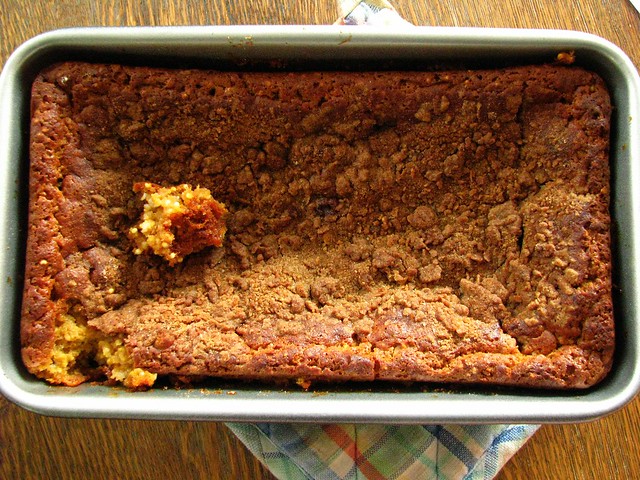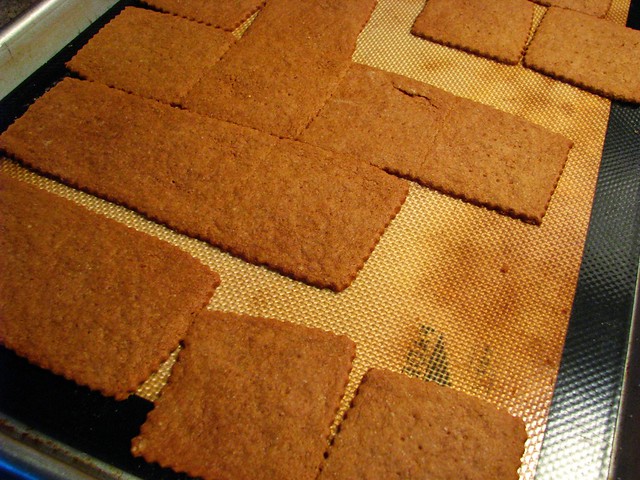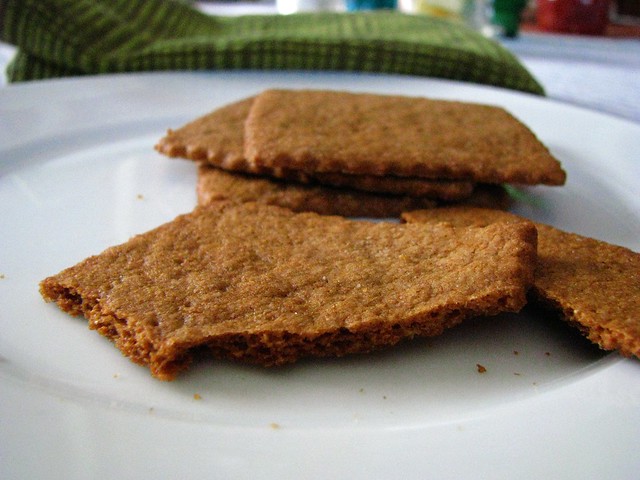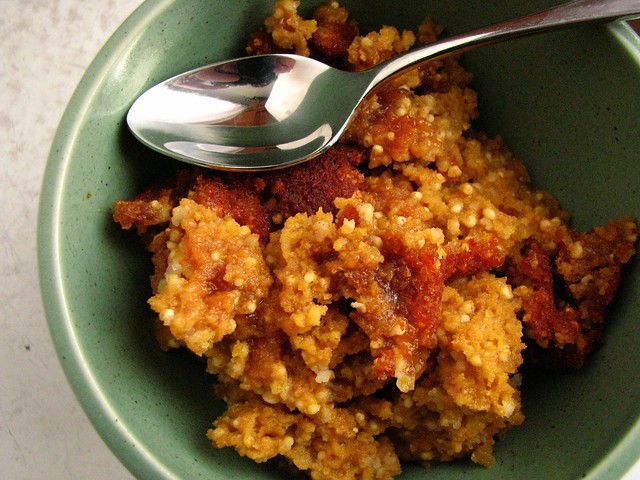The Daring Bakers’ February 2012 host was – Lis! Lisa stepped in last minute and challenged us to create a quick bread we could call our own. She supplied us with a base recipe and shared some recipes she loves from various websites and encouraged us to build upon them and create new flavor profiles.
Quick breads. I am well acquainted and quite friendly with these easy to mix, quick to bake members of the carbohydrate family, though by looking at this post you may wonder if I've ever baked one in my life. Lately, I have really re-examined my grain consumption, for no other reason than that I felt I was beginning to bake, eat, and repeat too often for my own good. I am curious by nature, and quick breads are easy game for someone like me who can't follow a recipe to save her soul. Usually it turns out well, but in this case, I was set up for a fail of near epic proportion.

Earlier in the month, a friend sent me a link to these pumpkin-millet muffins, and I thought I would (not only procrastinate until the last second as usual, but also) make a beautiful, Daring Baker worthy adaptation using no refined sweetener and only sprouted wheat. Does a sugar-free quick bread made entirely with sprouted wheat flour exist anywhere other than in my mind? I’m not sure. When Googling for answers, I found nothing that looked like what I was after. I did find several sources claiming that sprouted flour can be used 1:1 for regular flour, which after several sprouted flour baking sessions I now question wholeheartedly.
This month was filled with pangs of guilt over my return to sugar; I tried desperately not to bake solely for the sake of baking. I made muffins for others and for my son’s school snacks, but other than sourdoughs (and one batch of peanut butter kiss cookies for my Valentine), I did pretty well. That unfortunately meant that I also left my challenge quick bread until almost the last moment. I wouldn’t say it’s completely inedible, but it does give new meaning to the phrase “bread bowl”.
I am convinced that wheat gluten changes when the grain is sprouted. I don’t find a whole lot of concrete evidence to back up my assumption, but did read this interesting article written by Dr. Vicki Peterson. In it, she says that sprouted grains that contained gluten prior to sprouting still contain gluten after sprouting (this is an article written for gluten intolerant people), but also that grass of sprouted grains are considered gluten-free for the first 10 days of their life. I didn’t grow my sprouted wheat to the point of grass, but it is curious.
Sprouted flour seems to do well in things that are tender by nature, I’ve had great luck making it into crackers and waffles, even cookies benefit from the tender-sweet nature of sprouted wheat. This bread could have failed because I also used brown rice syrup instead of sugar, and a good amount of gluten-free millet. Adding insult to injury, I had even soaked and tried to sprout my millet, which I found out (3 days of waiting in) would not sprout because it was already hulled...
Half of the bread stayed in the pan when I tried to flip it out, and when I took a taste, it was nearer to savory than sweet. It reminded me exactly of a spoon bread, or cornbread stuffing, but lacked sufficient flavor to convince me I'd want to eat it on it's own. It was surprisingly moist, and texturally very interesting. I let it sit on the counter for several hours wondering what to do with it.
Half of the bread stayed in the pan when I tried to flip it out, and when I took a taste, it was nearer to savory than sweet. It reminded me exactly of a spoon bread, or cornbread stuffing, but lacked sufficient flavor to convince me I'd want to eat it on it's own. It was surprisingly moist, and texturally very interesting. I let it sit on the counter for several hours wondering what to do with it.

Meanwhile, I mixed up my favorite graham cracker recipe using 100% sprouted flour - just wondering if they would fare the same disastrous fate as my quick bread. The dough was very soft (I let it sit for a full day in the fridge before even attempting to roll it out) and delicate, and spread much more than conventional flour grahams do. They needed an extra 5 minutes or so in the oven, had to cool completely on the pans, and then finally crisped up enough to be considered crackers. But like most sprouted wheat things, the flavor was good enough to warrant all of the extra monkeying around. Sweet, earthy grahams of sprouted wheat are worth fiddling with - but keep in mind the dough does not at all act like ones made with conventional white or wheat flours.


After some time had passed, I decided that if I did not live in a household of picky eaters, my failed pumpkin millet bread would definitely be a good candidate for new life. I called a friend, and asked if she'd be game for some experimental stuffed peppers. She agreed, and I popped the whole "loaf" of depressingly soggy bread into the freezer until next week when I have more time to play. I plan to fry up ample amounts of onion and leek and add some sausage, and see if I can't love this accident if it's doctored up and called by another name. Perhaps I'll even like it well enough to tell you more about it - only time will tell.
As for sprouted wheat baking? I am thoroughly bewildered, but I'm not giving up. There must be an answer to my questions, and there is most likely a learning curve that I wasn't expecting. It's funny that one of our easier Daring Baker challenges turned out to be one of my only full-out fails, but it's ok. It's another good challenge of trying to make something out of nothing that lies ahead.
As for sprouted wheat baking? I am thoroughly bewildered, but I'm not giving up. There must be an answer to my questions, and there is most likely a learning curve that I wasn't expecting. It's funny that one of our easier Daring Baker challenges turned out to be one of my only full-out fails, but it's ok. It's another good challenge of trying to make something out of nothing that lies ahead.

